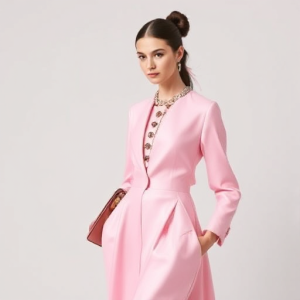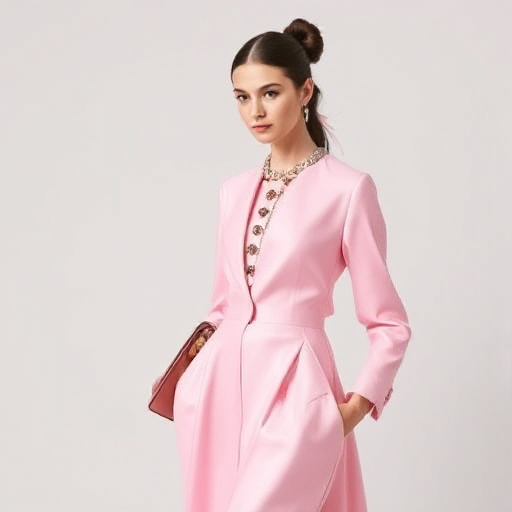
Luxury fashion brands operate in a highly competitive and dynamic market where exclusivity, prestige, and innovation define success. To maintain their position and sustain growth, luxury brands must employ strategic approaches that balance heritage with modernity. Below are key strategies that luxury fashion brands can leverage to stay ahead in the industry.
1. Brand Heritage and Storytelling
Luxury brands often have rich histories that differentiate them from mainstream fashion. By highlighting their heritage, craftsmanship, and unique brand stories, they create an emotional connection with consumers. Storytelling through advertising, digital platforms, and experiential marketing enhances brand perception and builds long-term loyalty.
2. Exclusive and Limited-Edition Products
Exclusivity is a core pillar of luxury. By offering limited-edition products, brands create a sense of scarcity, driving higher demand and desirability. Capsule collections, collaborations with artists, and bespoke services add value and reinforce the brand’s premium positioning.
3. Exceptional Customer Experience
Luxury consumers expect a superior shopping experience both online and offline. Personalized services, private shopping sessions, VIP events, and concierge services elevate the customer journey. Investing in well-trained staff and using technology such as AI-driven chatbots for online assistance also enhances service quality.
4. Digital Innovation and E-Commerce
While luxury has traditionally been associated with physical retail, digital transformation is crucial in today’s market. Brands must maintain an exclusive online presence through:
- High-end, visually appealing websites
- Seamless mobile shopping experiences
- Virtual showrooms and augmented reality (AR) fittings
- Exclusive online drops and personalized recommendations
5. Influencer and Celebrity Endorsements
Strategic partnerships with celebrities, influencers, and fashion icons amplify brand visibility and desirability. By collaborating with key opinion leaders (KOLs) and leveraging social media, luxury brands can reach a broader yet targeted audience while maintaining exclusivity.
6. Sustainability and Ethical Practices
Modern luxury consumers value sustainability and ethical production. Brands that prioritize:
- Eco-friendly materials
- Fair labor practices
- Circular fashion initiatives (recycling and resale programs)
- Carbon-neutral production processes
can enhance their reputation and appeal to environmentally conscious buyers.
7. Omnichannel Strategy
Luxury brands must integrate their offline and online presence seamlessly. This includes:
- Providing consistent experiences across retail stores, websites, and mobile apps
- Using data analytics to offer personalized recommendations
- Implementing QR codes and NFC tags for product authentication
8. Global Expansion with Local Adaptation
While luxury brands are global, they must tailor strategies to local markets. Understanding cultural nuances, collaborating with regional artists, and offering exclusive collections for specific markets help brands establish stronger connections with local consumers.
9. Loyalty and Membership Programs
Unlike mainstream fashion, luxury brands focus on exclusivity over discounts. Creating elite membership programs with personalized benefits, early access to collections, and invitation-only events fosters deeper customer relationships.
10. Experiential Marketing
Hosting exclusive events, fashion shows, pop-up experiences, and brand exhibitions engages consumers beyond products. Collaborating with art galleries, music festivals, or luxury travel brands enhances brand prestige and customer immersion.
To thrive in the luxury fashion industry, brands must strike a balance between tradition and innovation. By leveraging digital transformation, personalization, exclusivity, and sustainability, luxury fashion brands can enhance their prestige and maintain long-term success in an ever-evolving market.
